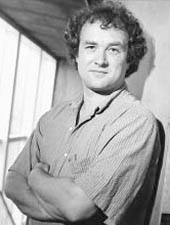Fukada, T., Tonks, N. K. (July 2001) The reciprocal role of Egr-1 and Sp family proteins in regulation of the PTP1B promoter in response to the p210 Bcr-Abl oncoprotein-tyrosine kinase. Journal of Biological Chemistry, 276 (27). pp. 25512-25519. ISSN 0021-9258
Abstract
Protein-tyrosine phosphatase 1B (PTP1B) is an important regulator of protein-tyrosine kinase-dependent signaling pathways. Changes in expression and activity of PTP1B have been associated with various human diseases; however, the mechanisms by which PTP1B expression is regulated have yet to be characterized. Previously, we have shown that the expression of PTP1B is enhanced by p210 Bcr-Ab1 and that PTP1B is a specific antagonist of transformation induced by this oncoprotein protein-tyrosine kinase, Here we have characterized the PTP1B promoter and demonstrate that a motif with features of a stress-response element acts as a (p) under bar 210 Bcr-Ab1-(r) under bar esponsive (s) under bar equence, termed PRS. We have shown that three C2H2 zinc finger proteins, namely Sp1, Sp3, and Egr-1, bind to PRS. Whereas binding of either Spl or Sp3 induced promoter function, Egr-1 repressed Sp3-mediated PTP1B promoter activation. The binding of Egr-1 to PRS is suppressed by p210 Bcr-Ab1 due to the inhibition of Egr-1 expression, resulting in the enhancement of PTP1B promoter activity. Our data indicate that Egr-1 and Sp family proteins play a reciprocal role in the control of expression from the PTP1B promoter.
Actions (login required)
 |
Administrator's edit/view item |

